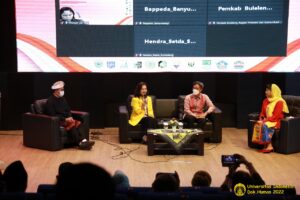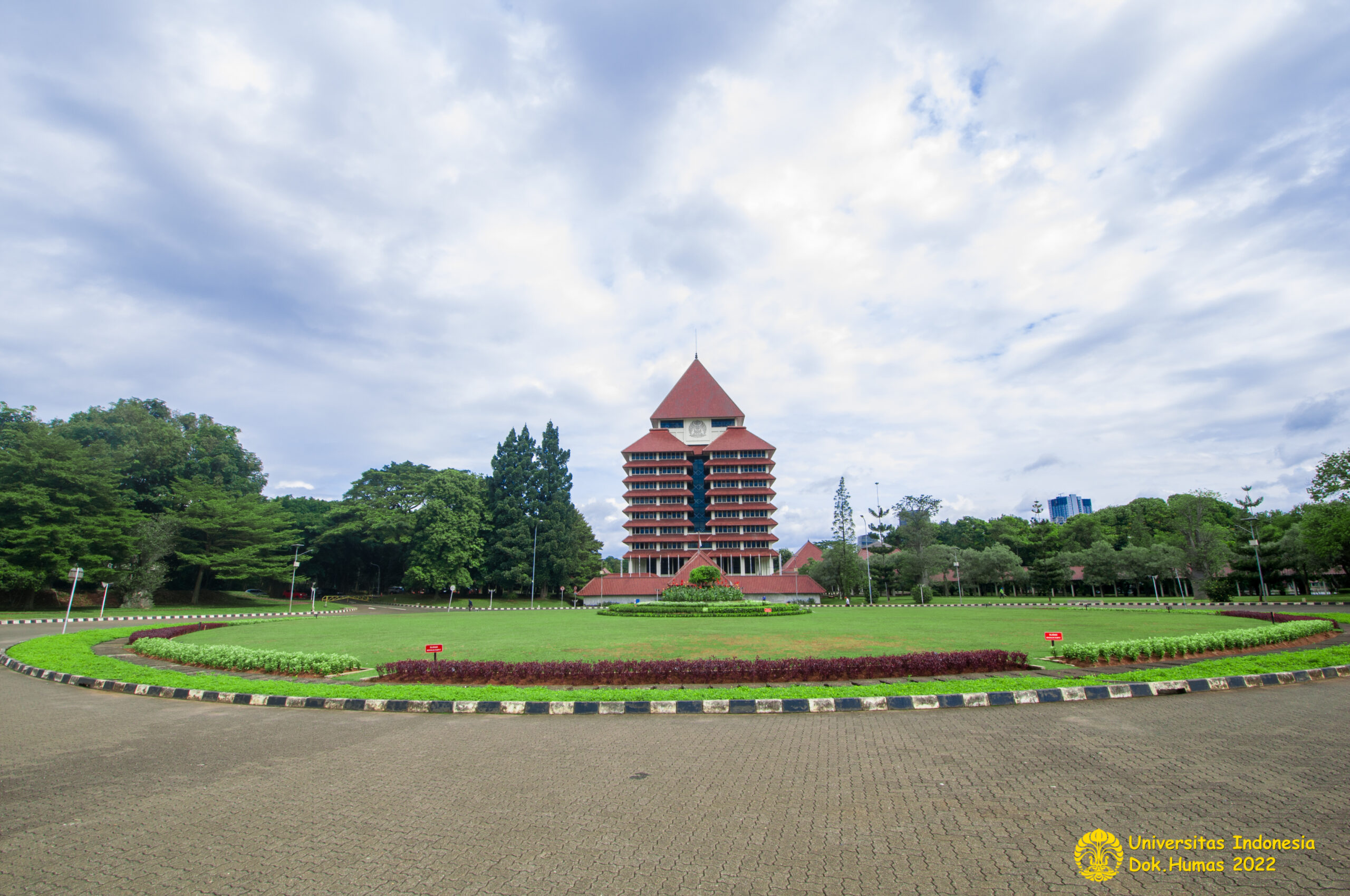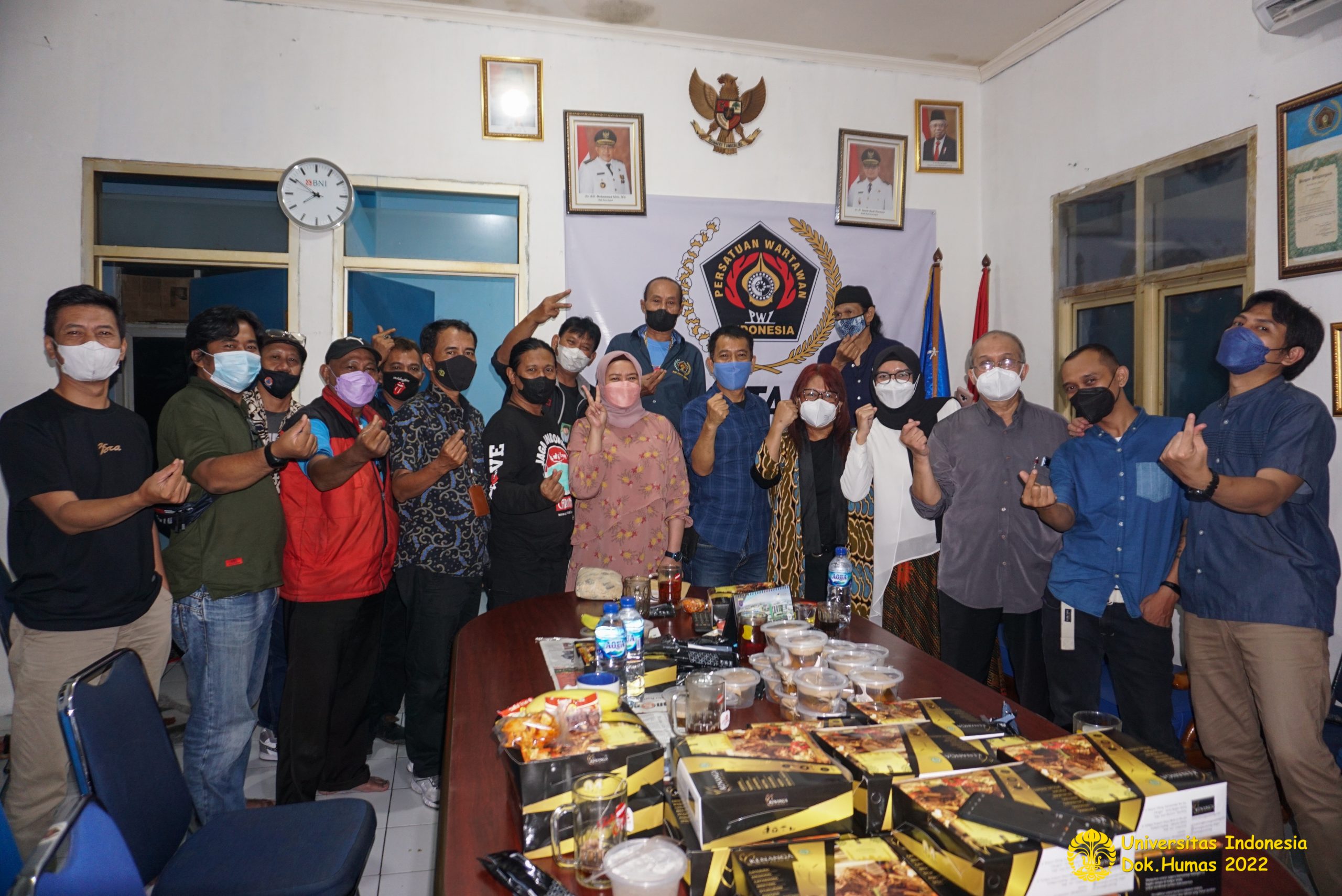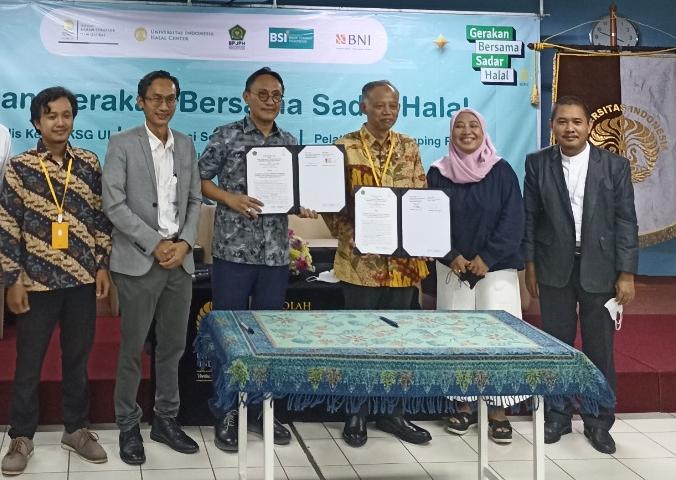
Commemorating the 77th Anniversary of the Independence of the Republic of Indonesia, Universitas Indonesia (UI) does community service to make a prosperous and strong Indonesia. Research and community service were the first activities UI revived after the Covid-19 pandemic. As one of the Tri Dharma of Higher Education, UI’s community service program is run by the Directorate of Community Service and Community Empowerment together with lecturers and students.
“There are two things that Universitas Indonesia (UI) does for the community service program. First, direct service delivery and community empowerment. Providing services whose benefits are felt directly can be in the form of health services or innovative products used by the community. Meanwhile, community empowerment is carried out through efforts to increase the ability and willingness to solve problems according to their respective potentials,” said University Secretary, dr. Agustin Kusumayati, M.Sc., Ph.D., in her opening remarks at the launch of the UI Community Service and Empowerment Program Year 2022, on Monday (15/8).
Currently, there are several focuses of UI in conducting community service activities. First, health and welfare to improve community empowerment. Second, environmental management and sustainable energy provision as an effort to maintain the sustainability of the earth as a place to live. Third, empowerment from an economic perspective in order to realizing economic resilience to ensure the sustainability of life. Finally, social, humanities and culture as an effort to maintain national identity and excellence.
“UI is committed to devoting all of its knowledge and creativity to help alleviate various problems that exist in society and in Indonesia. Of course, we must be vigilant because our country is a disaster-prone country. Our commitment, especially mine from the UI Research, Innovation, Service and Empowerment field, seeks to build a corridor for researchers to collaborate with various parties, of course by prioritizing n-helix. If we don’t collaborate, we will make less impact. Therefore, we must build academic, economic, and social impact together,” said UI Vice Rector for Research and Innovation, drg. Nurtami, Ph.D., Sp,OF(K).
This program consists of 318 activities in collaboration with the Regional Government (Pemda) of DKI Jakarta; Depok Regional Government; Bogor District Government (Pemkab), Kec. Tenjolaya; Buleleng District, Bali; Pandeglang District, Banten; Thousand Islands District; Bekasi District, Kampung Bungin Village; Sumedang District; Banyuwangi District, East Java; East Lombok District, West Nusa Tenggara; West Manggarai District, Labuan Bajo; and North Minahasa District, Likupang District.
“Health issues in East Lombok are a serious concern for the government here, especially in reducing maternal mortality, infant mortality, and stunting. According to the 2018 Basic Health Research, health problems in East Lombok are categorized as very high. Therefore, on behalf of the East Lombok Government, we would like to express our appreciation, gratitude, and give the highest award to UI for carrying out community service in our area,” said the Head of the East Lombok District Health Office, Faturrahman.
Through this community service activity, it is hoped that the community can get to know UI’s excellent community service programs spread throughout Indonesia as a form of UI’s contribution to solving health, environment, economic inequality, and education problems. This service activity is also supported by several industry partners, such as PT Paiton Energy, PT Sarana Multi Infrastruktur, PT Sarana Multigriya Finansial, PT Indonesian Infrastructure Finance, and PT Penjaminan Infrastruktur Indonesia.
Chief Financial Officer of PT Paiton Energy, Bayu Anggoro Widyanto, said the cooperation between UI and PT Paiton is based on the 7th point of the Sustainable Development Goals (SDGs). the 12th, and 13th point, namely affordable clean energy; responsible consumption and production; and addressing climate change. UI and PT Paiton are trying to tackle waste from the smallest scale, namely within the UI campus. “Through cooperation with Parangtopo Laboratory of Faculty of Mathematics and Natural Sciences, we donated 8 bio digester units for the management of up to 2 tons of waste. The output of this activity is the creation of a waste power plant that can generate 234 kilowatt hours of electricity, produce solid and liquid fertilizers, and reduce carbon emissions by 187 tons of CO2/year,” said Bayu.
The community service program also involves lecturers and students, as well as ILUNI (Alumni Association) The program is based on research conducted to be applied and run sustainably. According to UI Faculty of Administrative Sciences Lecturer, Dr. Vishnu Juwono, S.E., MIA, who conducted community service in Likupang, the contribution of UI servants in the area in three ways, namely providing an understanding of the 14th SGDs concept to the community; providing an understanding of the growth economy; and conducting training for local governments. That way, as a special economic zone, Likupang tourism can be developed while still paying attention to and protecting the environment.
Dean of the Faculty of Nursing, Agus Setiawan, S.Kp., M.N., D.N., together with a team of students tried to tackle the problems of stunting and tuberculosis in community service activities as an effort to achieve the 13th SGDs. According to Agus, currently, 1 in 4 Indonesian children still suffer from stunting. Therefore, serious measures must be taken. Meanwhile, Universitas Indonesia (UI) Faculty of Mathematics and Natural Sciences Lecturer, Dr. Retno Lestari, together with students tried to improve the economy of residents through the management of cassava cultivation and protect the environment by planting mangroves in the Pandeglang area, Banten.
As a beneficiary, Abdul Basir said, UI’s contribution since 2016 until now has benefited fishermen in the Muara Gembong area, Bekasi. Previously, access to electricity or lighting in the boat entry and exit lanes was very limited. If the channel is cut off, fishermen will find it difficult to go to sea. Thanks to innovations made by UI Faculty of Engineering Lecturer, Prof. Dr. Ir. Adi Surjosatyo, M.Eng., and students, the area can get electricity by utilizing wind energy.
“The servants are our teachers. They teach us to love nature because from nature there will be energy that can benefit the community. Wind and sun can be used for lighting, cooling, and so on. We were also taught to plant mangroves so that they can be used as a tourist attraction. In addition, Dr. Rambat also guided us on how to process fish so that the cheap pond products can be more expensive as an effort for food security. We hope that this program will continue so that the benefits can be extended to the surrounding areas,” said Basir.



